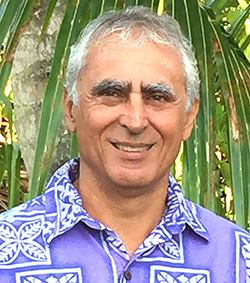The best source for understanding the concept of 'global consciousness' and how it affects the evolution of life on Earth is Tielhard de Chardin and his concept of the 'noosphere'. The noosphere was an evolving composite of humanity's thoughts, feelings and social relationships that evolved steadily upward towards a fuller manifestation of human potential. De Chardin's thoughts on a ‘global consciousness’ were independently supported by theorists such as Carl Jung who discovered archetypes of the 'collective unconscious' of humanity. More recently, popular researchers such as Gregg Bradden and Lyn McTaggart have cited scientific evidence for the existence of a unified global consciousness grid around the planet.
Scientific support for the idea of a global consciousness is provided by a Project at Princeton University. The Global Consciousness Project has tracked major global events and how they impact on the 'collective consciousness' of humanity. Global events such as the deaths of Princes Dianna and Mother Theresa; the 911 attack; the opening ceremony of the 2008 Olympic Games; and even the November 4, 2008 election of Barack Obama have all had a measurable impact on global consciousness.
So how does the idea of a global consciousness relate to the Obama administration? The first is the hope of racial equality that his presidency embodies by nature of Obama’s own ethnic background. His father was a black Kenyan citizen of Muslim heritage that married his white mother from Kansas with a Christian background. Obama also spent four formative years in Indonesia where he was schooled with local Indonesians who were largely Muslim. Perceptions of racial inequality and domination by European peoples and their descendents is still a pervasive legacy of colonialism around the planet. Perhaps nowhere was Obama’s election celebrated more than in African and Muslim nations that could easily identify with his background.
An Obama administration is likely to take a number of highly symbolic steps to reconcile the U.S. with the international community. Among these is anticipated to be a major policy speech in an important Muslim nation. This will do much to address deep grievances against recent U.S. policies in the Muslim world. Furthermore, the symbolism and policy changes in such speeches will do much to reconcile historic and contemporary animosities between the developed world, and many nations in the undeveloped world.
Another way that global consciousness relates to the upcoming Obama administration is through the social networks that he is establishing with U.S. citizens through the internet. The concept of a global consciousness is physically represented through the communications infrastructure of the internet. The internet probably more than anything else physically symbolizes the noosphere or 'global consciousness' that Chardin was arguing to be a critical factor in the evolution of humanity. The social networking that the Obama administration has initiated through its Change.Gov sight will significantly impact on the development of a more unified global consciousness. This will facilitate the free exchange of ideas and establishment of relationships that will accelerate consciousness change in a range of key policy areas.
Obama’s critics might be willing to concede that he does instill genuine hope of profound social changes for many around the world, and does facilitate greater networking between U.S. government and citizens. These benefits, according to his critics, pale in significance to the stranglehold on policy created by corporate interests that control key personnel in his administration. The hope for a positive future and social networking induced by the Obama administration are seen as the proverbial velvet glove covering the steel fist of corporate capitalism that will ultimately crush the hopes of many in the U.S. and around the world.
Such criticisms are short sighted insofar as they profoundly underestimate the impact that consciousness change has on the policy making process. Many historical events provide evidence of how changes in consciousness led to profound policy changes despite the opposition of powerful interest groups. Historic social movements such as anti-slavery, women’s suffrage, civil rights, environment, peace, etc., all arose from consciousness changes among citizens the world over on key political ideas. These ideas had been in place for centuries and led to official policies that were staunchly defended by those who saw them as part of the natural order of society. The consciousness changes ultimately led to private citizens mobilizing to force political elites to shift their support away from outdated ideas and policies. As Victor Hugo, the celebrated French once said: “Nothing is as powerful as an idea whose time has come.” The infusion of new ideas, relationships and ways of looking at the world does ultimately bring about profound policy changes. Insofar as President-Elect Obama embodies and facilitates profound consciousness change in the U.S. and around the world, he does ultimately represent change we can believe in. Have a Merry Christmas.
(Note: You can view every article as one long page if you sign up as an Advocate Member, or higher).





